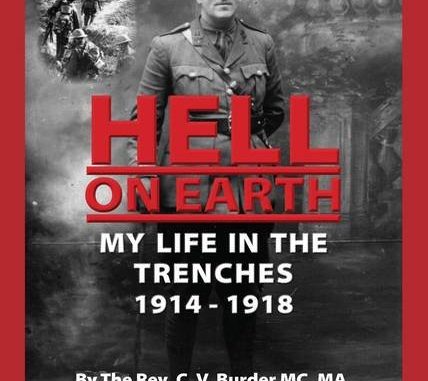
This memoir remained hidden until it was unearthed from a trunk of manuscripts in 2009, nearly 50 years after the author’s death. Before the war, Claud Burder was a parson working in Argentina. On the outbreak of the conflict he returned to Britain and enlisted as a private in the Artists’ Rifles. After brief service on the Western Front, he was commissioned into the 1/8th Battalion, Middlesex Regiment and served through Western Front’s most infamous battles, including Loos, the Somme, Arras and Third Ypres.
The backstory of the book’s publication adds an additional layer to its significance. Claud Burder’s son, John, decided to sell his home to finance the memoir’s publication after discovering the manuscript in his attic.
His father’s narrative stands out for its vivid descriptions, achieved through a blend of diary entries, personal reflections, and direct accounts of the war’s surreal horrors and sporadic, unexpected moments of humanity and humour. His experience as a clergyman and soldier provides a unique perspective, lending the memoir an emotional depth that is both insightful and unsettling.
Despite its literary merits and the significant personal sacrifice made by John Burder to publish his father’s work, the book suffers from poor typesetting and numerous typographical errors, detracting from the overall reading experience. There are also no page numbers which makes it impossible for researchers and academics to reference. These issues may be indicative of a rushed publication process, unfortunately undermine the book’s credibility and can frustrate readers.
While the technical flaws of this book are regrettable, they do not entirely overshadow the intrinsic value of Burder’s firsthand account. Memoirs of men who served in the 1/8th Middlesex are rare and this memoir deserves attention from historians, educators, and anyone interested in the personal dimensions of war.

